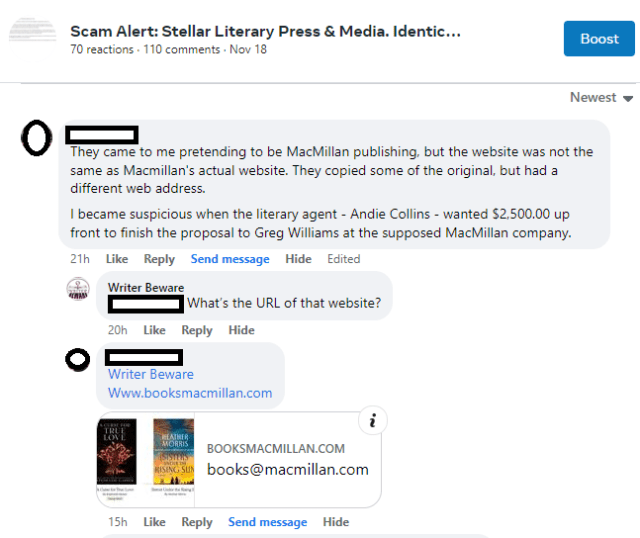From The Economist:
Are we we truly so precious?” Dean Baquet, the executive editor of the New York Times, asked me one Wednesday evening in June 2020. I was the editorial-page editor of the Times, and we had just published an op-ed by Tom Cotton, a senator from Arkansas, that was outraging many members of the Times staff. America’s conscience had been shocked days before by images of a white police officer kneeling on the neck of a black man, George Floyd, until he died. It was a frenzied time in America, assaulted by covid-19, scalded by police barbarism. Throughout the country protesters were on the march. Substantive reform of the police, so long delayed, suddenly seemed like a real possibility, but so did violence and political backlash. In some cities rioting and looting had broken out.
It was the kind of crisis in which journalism could fulfil its highest ambitions of helping readers understand the world, in order to fix it, and in the Times’s Opinion section, which I oversaw, we were pursuing our role of presenting debate from all sides. We had published pieces arguing against the idea of relying on troops to stop the violence, and one urging abolition of the police altogether. But Cotton, an army veteran, was calling for the use of troops to protect lives and businesses from rioters. Some Times reporters and other staff were taking to what was then called Twitter, now called X, to attack the decision to publish his argument, for fear he would persuade Times readers to support his proposal and it would be enacted. The next day the Times’s union—its unit of the NewsGuild-cwa—would issue a statement calling the op-ed “a clear threat to the health and safety of the journalists we represent”.
The Times had endured many cycles of Twitter outrage for one story or opinion piece or another. It was never fun; it felt like sticking your head in a metal bucket while people were banging it with hammers. The publisher, A.G. Sulzberger, who was about two years into the job, understood why we’d published the op-ed. He had some criticisms about packaging; he said the editors should add links to other op-eds we’d published with a different view. But he’d emailed me that afternoon, saying: “I get and support the reason for including the piece,” because, he thought, Cotton’s view had the support of the White House as well as a majority of the Senate. As the clamour grew, he asked me to call Baquet, the paper’s most senior editor.
. . . .
Like me, Baquet seemed taken aback by the criticism that Times readers shouldn’t hear what Cotton had to say. Cotton had a lot of influence with the White House, Baquet noted, and he could well be making his argument directly to the president, Donald Trump. Readers should know about it. Cotton was also a possible future contender for the White House himself, Baquet added. And, besides, Cotton was far from alone: lots of Americans agreed with him—most of them, according to some polls. “Are we truly so precious?” Baquet asked again, with a note of wonder and frustration.
The answer, it turned out, was yes. Less than three days later, on Saturday morning, Sulzberger called me at home and, with an icy anger that still puzzles and saddens me, demanded my resignation. I got mad, too, and said he’d have to fire me. I thought better of that later. I called him back and agreed to resign, flattering myself that I was being noble.
Whether or not American democracy endures, a central question historians are sure to ask about this era is why America came to elect Donald Trump, promoting him from a symptom of the country’s institutional, political and social degradation to its agent-in-chief. There are many reasons for Trump’s ascent, but changes in the American news media played a critical role. Trump’s manipulation and every one of his political lies became more powerful because journalists had forfeited what had always been most valuable about their work: their credibility as arbiters of truth and brokers of ideas, which for more than a century, despite all of journalism’s flaws and failures, had been a bulwark of how Americans govern themselves.
I hope those historians will also be able to tell the story of how journalism found its footing again – how editors, reporters and readers, too, came to recognise that journalism needed to change to fulfil its potential in restoring the health of American politics. As Trump’s nomination and possible re-election loom, that work could not be more urgent.
I think Sulzberger shares this analysis. In interviews and his own writings, including an essay earlier this year for the Columbia Journalism Review, he has defended “independent journalism”, or, as I understand him, fair-minded, truth-seeking journalism that aspires to be open and objective. It’s good to hear the publisher speak up in defence of such values, some of which have fallen out of fashion not just with journalists at the Times and other mainstream publications but at some of the most prestigious schools of journalism. Until that miserable Saturday morning I thought I was standing shoulder-to-shoulder with him in a struggle to revive them. I thought, and still think, that no American institution could have a better chance than the Times, by virtue of its principles, its history, its people and its hold on the attention of influential Americans, to lead the resistance to the corruption of political and intellectual life, to overcome the encroaching dogmatism and intolerance.
But Sulzberger seems to underestimate the struggle he is in, that all journalism and indeed America itself is in. In describing the essential qualities of independent journalism in his essay, he unspooled a list of admirable traits – empathy, humility, curiosity and so forth. These qualities have for generations been helpful in contending with the Times’s familiar problem, which is liberal bias. I have no doubt Sulzberger believes in them. Years ago he demonstrated them himself as a reporter, covering the American Midwest as a real place full of three-dimensional people, and it would be nice if they were enough to deal with the challenge of this era, too. But, on their own, these qualities have no chance against the Times’s new, more dangerous problem, which is in crucial respects the opposite of the old one.
The Times’s problem has metastasised from liberal bias to illiberal bias, from an inclination to favour one side of the national debate to an impulse to shut debate down altogether. All the empathy and humility in the world will not mean much against the pressures of intolerance and tribalism without an invaluable quality that Sulzberger did not emphasise: courage.
. . . .
One of the glories of embracing illiberalism is that, like Trump, you are always right about everything, and so you are justified in shouting disagreement down. In the face of this, leaders of many workplaces and boardrooms across America find that it is so much easier to compromise than to confront – to give a little ground today in the belief you can ultimately bring people around. This is how reasonable Republican leaders lost control of their party to Trump and how liberal-minded college presidents lost control of their campuses. And it is why the leadership of the New York Times is losing control of its principles.
. . . .
As everyone knows, the internet knocked the industry off its foundations. Local newspapers were the proving ground between college campuses and national newsrooms. As they disintegrated, the national news media lost a source of seasoned reporters and many Americans lost a journalism whose truth they could verify with their own eyes. As the country became more polarised, the national media followed the money by serving partisan audiences the versions of reality they preferred. This relationship proved self-reinforcing. As Americans became freer to choose among alternative versions of reality, their polarisation intensified. When I was at the Times, the newsroom editors worked hardest to keep Washington coverage open and unbiased, no easy task in the Trump era. And there are still people, in the Washington bureau and across the Times, doing work as fine as can be found in American journalism. But as the top editors let bias creep into certain areas of coverage, such as culture, lifestyle and business, that made the core harder to defend and undermined the authority of even the best reporters.
There have been signs the Times is trying to recover the courage of its convictions.
Link to the rest at The Economist
PG shares the concerns of the author of the OP.
Daniel Patrick Moynihan said, “Everyone is entitled to his own opinion, but not his own facts.”
PG notes that variations of Mr. Moynihan’s quote on the internet, which is part of the problem.
The internet is pretty close to untrammeled free speech. Various nations exclude opinions or facts their leaders believe to be wrong or inconvenient, but even The Great Firewall of China, a huge and expensive information blockage system, is reported to still being possible to breach by the use of the right technologies.
PG is pretty close to an online free-speech absolutist, reasoning that the best way antidote for bad or misleading speech is good speech.
That said, some of the bad speech on the internet includes purported facts that are demonstrably wrong, which may be spread by useful fools or those with malevolent intentions. This includes facts that are simply and demonstrably not true and urban legends that become so widespread they are regarded as true.
While PG was in college and before he quit drinking, it was common to hear older patrons at a bar arguing about whether Roosevelt had advance notice of the Japanese attack on Pearl Harbor. Those who claimed he did said Roosevelt ordered that military officials in Hawaii not be warned ahead of the attack, presumably so he would have a solid pretext for declaring war on Japan and Germany and deprive the many antiwar isolationists in the US of a leg to stand on.
PG is pretty certain that he could find “facts” online that would support any argument his addled brain might generate.


